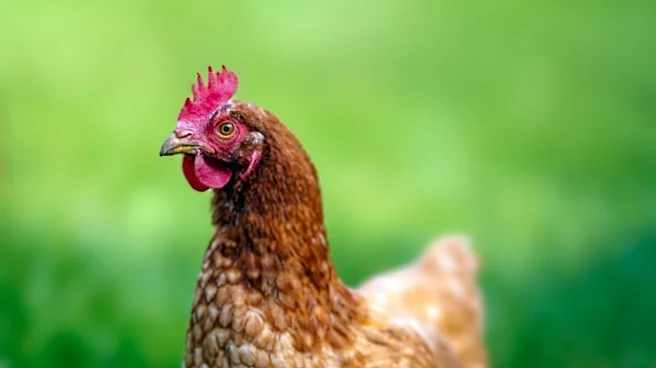What's Happening?
A family relocated from Vermont to the South, driven by the husband's career as an ordained minister. The move was contingent upon the wife's condition to have backyard chickens, a desire she had nurtured since their time in Vermont. The family settled
in North Carolina, where they constructed a chicken coop and began raising chickens. The chickens, initially a condition for the move, became a source of joy and community engagement for the family. The children actively participated in caring for the chickens, and the family shared eggs with neighbors, fostering a sense of community. The experience of raising chickens provided the family with a sense of fulfillment and happiness amidst challenging times marked by a global pandemic and economic recession.
Why It's Important?
The family's experience highlights the potential for small-scale, backyard farming to enhance community ties and personal well-being. Amidst broader societal challenges such as economic uncertainty and social division, the act of raising chickens offered the family a tangible source of joy and connection. Sharing eggs with neighbors not only strengthened community bonds but also provided a sense of purpose and contribution. This story underscores the importance of finding personal fulfillment and community engagement in everyday activities, particularly during times of widespread societal stress.
What's Next?
The family plans to continue their backyard chicken keeping, with the potential for expanding their involvement in local community activities. As the chickens continue to lay eggs, the family may explore further ways to engage with their neighbors and contribute to local food sustainability. The experience may inspire other families to consider backyard farming as a means of enhancing personal and community well-being. Additionally, the family's story could encourage discussions on the benefits of small-scale agriculture in urban and suburban settings.
Beyond the Headlines
The family's journey into backyard chicken keeping reflects broader cultural shifts towards sustainable living and local food production. It raises ethical considerations about food sourcing and the environmental impact of traditional farming practices. The story also touches on the cultural significance of reconnecting with nature and traditional practices in a modern context. As more families explore similar ventures, there may be increased interest in policies supporting urban agriculture and community-based food systems.
















